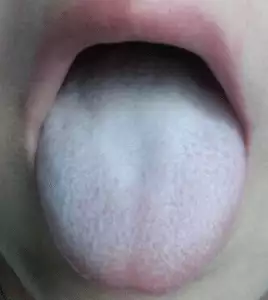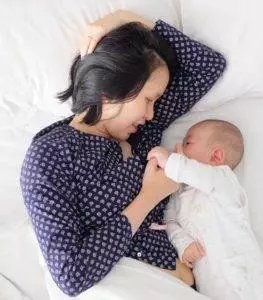-
 Art of Wellness Acupuncture & Traditional Chinese Medicine (TCM)11704 Wilshire Blvd, Suite 295, Los Angeles, CA, 90025
Art of Wellness Acupuncture & Traditional Chinese Medicine (TCM)11704 Wilshire Blvd, Suite 295, Los Angeles, CA, 90025
myartofwellness@gmail.com310-451-5522 Office Hours
MonClosedTue7:30 am --4 pmWed7:30 am --4 pmThu7:30 am -- 4 pmFri7:30 am -- 4 pmSat7:30 am -- 4 pmSunClosedOur office opens from Tuesdays to Saturdays 7:30 am to 4 pm, will be closed on Memorial day, Independent day, Labor day, Thanksgiving day, Christmas and New year.
-
Recent Posts
- How to Treat Rosacea With Acupuncture and TCM
- How to Treat Perioral Dermatitis With Acupuncture and TCM
- Lymphatic Drainage With Acupuncture and TCM
- How to Treat Turf Toe With Acupuncture
- How to Treat Nerve Pain With Acupuncture and TCM
- How to Treat Watery Eyes With Acupuncture and TCM
- How to Treat Ovarian Cysts With Acupuncture and TCM
- How to Treat Dystonia With Acupuncture and TCM
- Can Acupuncture Help Bad Breath?
- How to Treat Atopy with Acupuncture and TCM
- Plantar Fasciosis Treatment With Acupuncture and TCM
- How to Protect Yourself When Air Quality Is Poor
- How to Treat Spinal Headache With Acupuncture and TCM
- How to Treat Sarcoidosis With Acupuncture and TCM
- How to Treat Flu With Acupuncture and TCM
- Chinese New Year 2025 Year of the Snake
- Sign up to receive news and updates and get my free report:“The Top 10 Reasons to Try Acupuncture”

July 2025 M T W T F S S 1 2 3 4 5 6 7 8 9 10 11 12 13 14 15 16 17 18 19 20 21 22 23 24 25 26 27 28 29 30 31
Women’s Health
How to Treat Candida With Acupuncture and TCM
By Xiaomei Cai, L.Ac., Ph.D., & Qineng Tan, L.Ac., Ph.D.

Why do I keep getting yeast infections? White patches on the tongue? It could be the common fungal infection Candida, also known as Candidiasis or a yeast infection. Candida infection can happen to people of all ages and in different parts of the body. Acupuncture and TCM Chinese herbs can help resolve recurrent yeast infections and thrush in the mouth.
Candida albicans, the species of candida fungus that most often causes candidiasis, is a type of yeast that naturally exists in the human body. When the population of candida is kept to normal levels, it causes no harm; in fact, it acts to help digestion and the absorption of nutrients from food. But when proliferation of the fungus gets out of control, candida can cause burning pain, redness and inflammation, and difficulty with normal processes like eating, digestion, and elimination. In extreme cases, candidiasis can cause serious illness.
Candida overgrowth most often happens in the mouth (known as “thrush”), or in the genital area (usually called a “yeast infection”). Thrush in babies’ mouth commonly affects very young infants, creating white or yellow patches or sores in and around the mouth that can affect feeding. Thrush in adults is less common, but can occur when someone’s immune system is weak (common among people living with HIV/AIDS), or if they wear dentures or use medications for dry mouth, causing the typical white patches, cracks in the corners of the lips, and burning sensations in and around the mouth and throat.
Most women have probably experienced a vaginal yeast infection at some point in their lives. This type of candida causes burning and itching in the vulva and vagina along with a white, clumpy discharge. Candidiasis can also affect men, causing an itchy rash on the penis.
Is candida or thrush contagious? It’s rare for a person to “catch” a fungal infection from another person, but it is possible, for example, for a person to pass a yeast infection to his or her partner through sexual contact. It is also possible for a mother to develop thrush on her nipples from nursing her baby who has oral candidiasis.
Candida overgrowth can affect other parts of the body, including the finger or toe nails (candidal paronychia), and especially areas of the skin that tend to be damp and sweaty, like the armpits or the creases around the groin.
In some cases, invasive candidiasis can get deeper into the body, infecting the gastrointestinal system or even getting into the bloodstream, which can lead to infection of various organs, including the eyes, heart or kidneys. This type of candida infection can become serious, causing fever, and even sepsis, which can be fatal.
Candida overgrowth creates different problems for different people. That is why TCM, acupuncture, and herbal medicine provide an excellent way to treat candida. TCM theory of candidiasis treatment allows for a highly individualized approach to each patient, so that we can get rid of yeast infections for good.
Top 5 Types of Candida Infection

Candida overgrowth can occur in different parts of the body. The most common kinds of yeast infection or candida are:
- Oral candidiasis – also known as thrush in mouth, or yeast infection in the mouth. Thrush in babies usually occurs because the infection passes from the mother’s vaginal area to the baby during birth, and the infant’s immune system is not developed enough to fight it. What thrush on tongue looks like: white patches that can be wiped off.
- Vaginal candidiasis – commonly known as a vaginal yeast infection, candidiasis of the female genitals causes redness, burning, and “cottage cheese-like” discharge.
- Candidal balanitis – candida infection of the male genitals happens particularly in uncircumcised men. More recent research has led some medical professionals to believe that fungal infections may cause a prostate problem, infection in prostate, prostatitis symptoms, enlarged prostate symptoms, and symptoms to prostate cancer.
- Cutaneous candidiasis – or yeast infection on skin. Candida can cause diaper rash in babies, and red, itchy, peeling patches in areas where the skin has many folds and creases. Candidiasis can also infect the fingernails, toenails and nail beds.
- Invasive candidiasis – When candida gets into the digestive tract or bloodstream, it can cause a serious systemic infection that affects the blood, heart, brain, esophagus, and/or digestive tract. This happens most often in people with compromised immune systems, especially people with HIV or who are undergoing chemotherapy for cancer.
Candida overgrowth can also lead to symptoms of fatigue, chronic allergies, chronic sinusitis or post-nasal drip. Central nerve damage, constant irritability, and chronic fatigue syndrome are all signs that a person may have a deep candida infection.
What Causes Candida?
Candida yeasts are present in every human body. What causes candidiasis is abnormal fungal overgrowth due to a lack of friendly bacteria or a weakened immune system. Women often get yeast infections during pregnancy because of changes in the balance of bacteria in their pelvic area. Antibiotics, steroids, birth control pills, and chemotherapy drugs can all contribute to candidiasis by affecting the gut flora. Just a few rounds of antibiotics can destroy all of the healthy bacteria we need to maintain proper balance. Personal habits and hygiene mishaps, like wearing too-tight pants or the same sweaty workout clothes all day, can also lead to yeast infections. Food choices can also play an important role in whether or not a person is prone to yeast infections. It may be recommended that people go on a “candida cleanse” or special candida diet to help stop the candida overgrowth.
How Do You Treat Candida?

Often a mild case of candidiasis in the mouth will go away within a few weeks on its own. If oral thrush treatment is needed, a doctor may prescribe antifungal nystatin drops, mouthwash, or lozenges.
Cutaneous candida (skin infection), vaginal yeast infections, and male genital infections will usually be treated with antifungal medications such as Fluconazole, which can be taken orally, or topical antifungal creams like Nystatin.
These antifungals may help to alleviate the symptoms of candidiasis by stopping the yeast overgrowth. However, for many people who experience recurrent yeast infections, they are only a temporary solution. Frequent use can build up an antifungal resistance. When candida keeps coming back, there is surely a deeper cause for the ongoing yeast infections.
Azoles and other types of antifungal medications are used to stop the growth of the candida in patients with invasive candidiasis. Unfortunately, they can also be toxic to other organs, like the kidneys. For people who are already in poor health, these medications may cause more harm.
Acupuncture and TCM provide a method for dealing with candidiasis while improving immune function, and revitalizing the health of the skin, reproductive organs, digestive tract, or whatever parts of the body are affected by candida overgrowth.
How Can Acupuncture Help Candida?
In TCM philosophy, the spleen and stomach play important roles in digestion, especially the transformation of one fluid into another, and the movement of fluids through the digestive and eliminative organs. Basically, in TCM, the spleen is responsible for turning what we eat and drink into healthy blood and Qi (life force energy). When the spleen and stomach are weak and not working well, excess fluid builds up and encourages the candida yeasts to reproduce.
Candida is considered to be caused by spleen/stomach deficiency and dampness. When dampness collects in the pelvic region, it creates phlegm and leads to congestion and heaviness. This is what can lead to vaginal yeast infections or a prostate problem in men.
In other cases, the improper functioning of the stomach causes heat and fire to develop in the upper part of the body, which can cause thrush in the mouth, or the kind of invasive candidiasis that affects the heart.
Your acupuncturist will work to improve spleen and stomach function to restore balance of the intestinal flora with a combination of acupuncture, customized herbs, and a complete nutritional analysis to create an appropriate diet to cleanse candida from the system.
Acupuncture treatment will strengthen and tonify the spleen and other organs. Herbs can be used internally and externally to help relieve candidiasis. TCM formulations that have developed over many centuries are known to have antifungal and antibacterial properties.
Several studies have demonstrated the efficacy of using herbs in external forms for women’s genital infections. Using herbs via steam, hip bath, or douche bypasses the digestive system so that the herbs can directly help to reduce inflammation and discharge.
Top 5 Candida Diet Tips

A TCM practitioner will focus on creating and implementing a food program that helps to clear dampness from the body. Candida infection tends to occur when the body is more acidic. A diet that is high in refined sugars and meats and low in vegetables tends to create a lower PH level (below 7). Eating more dark green leafy vegetables will help to make the body more alkaline. It is also very important to check behavioral habits that might be contributing to the yeast overgrowth.
- Avoid all refined sugars, sweeteners, sweets, and even fruits. These foods all cause the candida yeast to spread more quickly. Stay away from foods with yeasts in them, like bread, crackers, packaged cereals, and pretzels. Vinegar and alcohol should also be cut out of the diet until the situation improves.
- Avoid milk, cheese, eggs, and red meats, and emphasize instead lots of green vegetables. Chlorophyll (the phytonutrient present in all green leaves) is especially helpful for getting rid of candidiasis. Stay away from eating fungi, like mushrooms, and pickled vegetables.
- Eat more warm, cooked foods, especially soups and rice, which are easy to digest. Other helpful foods include orange and yellow winter squashes and daikon radish.
- Use a baking soda solution (1-2% solution) to douche or as a hip bath to help get rid of a vaginal yeast infection.
- Taking a high quality probiotic supplement can help to restore proper balance of the gut flora and control yeast growth.
Be sure to keep the skin in sensitive areas clean and dry, but avoid using harsh soaps or deodorants. Avoid too-hot showers or baths, especially in shared spaces. Always change out of wet bathing suits and workout clothes right away. Wear loose clothing made of natural fibers.
Find Acupuncture Near Me for Candida
It can be very frustrating to suffer with recurrent yeast infections. If you keep getting yeast infections, it may be time to try a different treatment to help get rid of them. New parents who are worried about thrush in babies may find that starting to work with a TCM provider offers a safe, natural alternative to antibiotics and other medications. You may discover that an integrative approach to solving problems with candidiasis works better in the long run than over the counter creams or prescriptions to get rid of candida.
*This article is for education from the perspective of Traditional Chinese Medicine only. The education provided by this article is not approved by FDA to diagnose, prevent, treat and cure human diseases. It should not stop you from consulting with your physician for your medical conditions. Traditional Chinese Medicine is based on Qi, which is an invisible force that usually cannot be observed by modern science. Because science focuses on testing ideas about the natural world with evidence obtained through observation, these aspects of acupuncture can’t be studied by science. Therefore acupuncture and Chinese herbs are often not supported by double-blind, randomized trials, and they are considered alternative medicine therapies in the United States.
How to Treat Leiomyoma of the Uterus With Acupuncture and TCM
By Xiaomei Cai, L.Ac., Ph.D. & Qineng Tan, L.Ac., Ph.D.

Heavy bleeding, menstrual cramps, long periods? This could be a sign that a woman has leiomyoma of the uterus. Also known as uterine fibroids, leiomyomas are growths or benign tumors in or on the wall of the uterus. TCM and Acupuncture provide a natural alternative treatment that can help relieve uterine fibroid symptoms.
A leiomyoma, in general, is a growth in smooth muscle tissue. Leiomyomas can develop in any muscle tissue in the body, including that of the intestines, esophagus, and under the skin, but the most common type of leiomyoma occurs in the uterus.
Many women have uterine fibroids and aren’t aware of them. It is estimated that 60-80% of women will have leiomyomas of the uterus at some point during their reproductive years (“childbearing age” – anytime from menarche to menopause). Only about 30% of women report symptoms of fibroids to their doctor, though, because many women do not notice any signs of leiomyoma of the uterus. It is probably rare for someone to have a single fibroid tumor; usually, there are multiple tumors. Fibroids can be hereditary; if your mother had them, you may be more likely to have them, too.
Fibroid tumors can grow inside the uterus, or on the outside of the uterine walls. Sometimes they stay small, and in many cases they don’t cause problems. In some cases, though, they can grow large and press against other internal organs. Fibroids of any size can cause symptoms like painful or irregular periods, abdominal bloating, back pain, and bladder problems.
The primary sign that a woman has uterine fibroids is heavy bleeding during menstruation. In many cases, doctors will say that there is no need for medical intervention. Sometimes hormone suppressing medications are used to try to slow the growth of the tumors and reduce the period-related symptoms. In about 20% of cases, people opt for surgery to remove fibroids. Often the fibroids stop growing and may even shrink after menopause. It is extremely rare for leiomyomas of the uterus to become cancerous. However, uterine fibroids can cause women so much pain that it becomes disabling.
Fortunately, there is natural treatment for fibroids with TCM. Acupuncture and herbs are excellent modalities for helping all kinds of womens’ health issues related to the female reproductive organs. TCM doctors have been observing and treating growths in the pelvic area for many centuries. Acupuncture and herbs can help women with leiomyomas of the uterus, as well as related issues such as, PMS, endometriosis and ovarian cysts.
Top 10 Signs of Fibroids

In many–if not most–cases, women do not realize they have fibroids, either because they have no symptoms, or they don’t notice the signs as being something out of the ordinary. Some women will feel these symptoms of leiomyoma of the uterus:
- Heavy menstrual bleeding, heavy periods
- Longer periods
- Irregular menstruation, irregular periods, spotting
- Feeling pressure in the pelvic area, fullness in the belly
- Frequent urination (have to pee all the time)
- Urinary retention (having trouble peeing)
- Low back pain, hip pain
- Constipation
- Enlarged abdomen, belly bloated
- Pain during sex
The sort of heavy bleeding caused by fibroids can lead to anemia. Some fibroids can grow as large as a grapefruit, which clearly is going to cause distension in the abdominal area and put pressure on the other pelvic organs and blood vessels, potentially causing a lot of dysfunction and discomfort. But the size of a fibroid is not necessarily an indicator of whether it will cause painful periods or heavy bleeding. Even small leiomyoma of the uterus can cause pain and excessive bleeding. Emotional imbalance can also be a symptom of uterine fibroids. Leiomyomas of the uterus can cause difficulties during pregnancy, and in some cases, have a negative impact on fertility.
What Is the Treatment for Fibroids?
Sometimes a doctor may discover larger leiomyomas while doing a routine pelvic exam. When women seek medical treatment for fibroids, diagnostic imaging (ultrasound, CT, sonography, MRI, or x-rays) will be used to try to determine the location and size of the growths.
Current medical science does not provide a clear explanation for what causes leiomyomas to grow in the uterus; it is only understood that estrogens seem to contribute to their growth, so the first line of treatment usually focuses on trying to alter the levels of female hormones in an effort to slow the development of the fibroid tumors.
Hormone medications, oral contraceptives, and even hormone-releasing IUDs are often prescribed to help control the heavy periods (cause spotting or no periods). These drugs do not do anything to change the fibroids themselves, though, and obviously, they are not suitable solutions for women who have plans to become pregnant.
For women whose bleeding is so excessive that it becomes disabling, Lupron may be recommended. Lupron acts upon the pituitary gland to turn off estrogen production, which can essentially start early menopause. Many women experience menopausal symptoms like hot flashes and headaches while taking Lupron. It is usually prescribed for women who are planning on undergoing surgery, as it can temporarily reduce the size of the leiomyomas to make them easier to remove. It is not viable as a long-term treatment on its own, though; as soon as a woman stops taking the medication, the fibroids will grow back.
There are relatively non-invasive surgery techniques that are able to remove fibroids while preserving the uterus; this is called myomectomy, which can be performed via incision or laparoscopically. Uterine Artery Embolization (UAE) is a newer procedure that blocks blood flow to the leiomyomas by injecting particles into the arteries connected to them. Some women opt to have a hysterectomy, a major surgery to remove the entire uterus, to get rid of fibroids for good.
Unfortunately, many women think that painful periods and heavy bleeding during periods is normal. Heavy periods may be common, but they are not “normal” or necessary. Women do not have to suffer with terrible cramps and lose a lot of blood every month. TCM herbs and acupuncture offer a natural way to get relief from painful periods and reduce fibroids.
How Can Acupuncture Help Fibroids?

In TCM, we have a category of disorders that we classify as “Zheng Jia,” which mean “masses.” This umbrella concept covers all the womens’ health issues that stem from growths or tumors that affect the female reproductive system, including uterine fibroids, ovarian cysts/PCOS, endometriosis, and reproductive cancers.
According to TCM theory, Zheng Jia disorders arise from internal factors such as blood stasis,/phlegm (spleen deficiency), liver stagnation (fire), and cold uterus.
Top 3 Factors Causing Fibroids According to TCM:
- Blood stasis/Liver Stagnation – Qi (life force energy) helps blood to flow. If Qi is blocked, blood flow gets stuck. Good Qi flow relies strongly on the liver and the emotions related to it. People who tend to have negative PMS symptoms like irritability, breast tenderness, and cramping probably have compromised liver Qi due to long-term stress. Liver Qi stagnation leads to blood stasis, which contributes to the formation of the fibroid tumors. Presenting symptoms: irritability, breast tenderness, distended abdomen, strong emotions, heavy flow during period, bright or deep red color, possibly with clots, and some cramping. Bright red or deep red blood is an indication of liver fire.
- Cold uterus – Habits like always drinking cold beverages (especially during periods) and underdressing in cold environments can cause restricted flow of blood, which, over time, causes circulation issues and gradual development of tumors. Symptoms include: menstrual blood is darker red, cramping which improves with the application of heat (heating pad or hot water bottle) or after passing clots, feeling of being cold all the time, needing extra layers of clothing and blankets (yang deficiency).
- Phlegm/Spleen/Stomach Deficiency – This type of deficiency causes improper digestion of food, creating dampness and phlegm that builds up in the system and affects the blood flow, stagnation that causes the tumors to grow. Symptoms: indigestion, bloating, diarrhea, tendency to gain weight, lighter colored, watery period flow, maybe with some mucus.
When a TCM practitioner works with a patient with fibroids, she will not only choose acupoints and herbs to help shrink the growths themselves, but will also address the underlying factors that have led to the growth of the leiomyomas in the first place. With the right guidance and lifestyle modifications, the deeper stagnation can be resolved, which will help to reduce existing fibroids and prevent more from forming.
One study of Chinese Medicine herbs used to treat uterine fibroids in over 200 women showed a 72% reduction in bleeding, as well as over half of the patients reporting a reduction in back pain and abdominal pain. For over half of the patients in this study, imaging showed a reduction in size or even disappearance of the leiomyomas of the uterus.
Another study compared women receiving acupuncture and herbs versus patients treated with a combination of mifepristone, a steroid medication, and Chinese herbs. All of the women saw some benefits, but the ones who had acupuncture treatment saw an overall greater reduction in the volume of their fibroids.
One of the primary benefits of receiving regular acupuncture treatment is the prevention of blockages along the meridians and in the blood circulation. We believe that women who practice health maintenance with acupuncture are less likely to develop growths in the pelvis and to have better reproductive health and more comfortable periods overall. Acupuncture and herbs can help to manage the pain and bleeding caused by fibroids, offering an effective alternative to hormone medications or surgery.
Top 3 Tips for Fibroid Self-Care

Lifestyle and behaviors contribute to the formation of pelvic tumors. Knowing which habits may cause female health problems can help relieve painful periods.
- Manage stress – constant stress and anxiety have a profound effect on liver health, which in turn impacts the reproductive organs. Regular exercise, meditation practice, and prioritizing rest and sleep are keys to stress reduction. Don’t take on more projects and responsibilities than you feel you can handle. Ask for help when you are feeling overworked.
- Modify diet – avoid mucus-producing foods, especially deep-fried foods, dairy products, and red meat, which are harder for the body to process thoroughly. Undigested foods like this create mucus and stagnation. During the period, the pelvic area is vulnerable, and anything inappropriate can cause extra problems. Choose warm foods, ensure you do not have any indigestion. If you do, address it with acupuncture and herbal supplements.
- Stay away from cold especially during the period, a miscarriage, or post-partum. Anytime there is bleeding from the uterus, the uterus is open, and it is crucial to keep everything warm to allow proper blood flow.
Acupuncture Near Me for Uterine Fibroids
TCM has been used to treat all types of gynecological conditions since at least 1000 B.C. At Art of Wellness, we bring unique expertise to this area of women’s health care, combining over 30 years of experience in both traditional methods of treatment and partnering with the top womens’ medicine and fertility specialists in the Los Angeles area. Find relief from the pain of fibroids through integrative care for leiomyoma with acupuncture.
*This article is for education from the perspective of Traditional Chinese Medicine only. The education provided by this article is not approved by FDA to diagnose, prevent, treat and cure human diseases. It should not stop you from consulting with your physician for your medical conditions. Traditional Chinese Medicine is based on Qi, which is an invisible force that usually cannot be observed by modern science. Because science focuses on testing ideas about the natural world with evidence obtained through observation, these aspects of acupuncture can’t be studied by science. Therefore acupuncture and Chinese herbs are often not supported by double-blind, randomized trials, and they are considered alternative medicine therapies in the United States.
How to Treat Hyperthyroidism With Acupuncture and TCM
By Qineng Tan, L.Ac., Ph.D., & Xiaomei Cai, L.Ac., Ph.D.

Changes in mood, appetite, hair, and skin? Wondering whether these could be signs of menopause; or could it be a thyroid problem? The symptoms of hyperthyroidism are often similar to what we think of as typical signs of menopause. Acupuncture treatment has been shown to be effective at helping to manage many types of endocrine system conditions, including hyperthyroidism, Graves’ disease, and Hashimoto’s thyroiditis.
Hyperthyroidism, sometimes called “overactive thyroid,” refers to a set of various disorders in which the thyroid gland produces excess hormones. This leads to thyrotoxicosis, a condition in which there is too much thyroid hormone in the body. Sometimes this is indicated by a visible swelling of the thyroid gland in the front of the neck, known as a “goiter.”
Thyroid disorders are much more common in women than in men, and they often develop in young adulthood, between the ages of 20 and 40. However, people of any age can show signs of hyperthyroidism. In older adults, the symptoms of an overactive thyroid can be subtle, and easily confused with those of other hormonal imbalance conditions such as perimenopause symptoms and diabetes. It can often be difficult and take years for patients to be diagnosed with a thyroid disorder, and then to find the right treatment to solve their problem. Hyperthyroidism can have different root causes, and treating it effectively requires finding the correct source of the problem.
It is important to address thyroid problems because hyperthyroidism increases the risk for heart disease and osteoporosis. There is some evidence that people with Graves’ disease are at higher risk for developing thyroid cancers. Acupuncture has been shown to be a safe and effective alternative or adjunct treatment for all kinds of thyroid disorders. The TCM approach can help correct the symptoms of excess thyroid hormone by restoring balance at the source of the problem.
Top 5 Causes of Hyperthyroidism
Several different factors can lead to enlargement or inflammation of the thyroid and the overproduction and output of thyroid hormones. Some causes of hyperthyroidism include:
- Hyperthyroidism can develop due to nodules or a multinodular goiter on the thyroid gland, which causes it to secrete extra hormones.
- Thyroiditis, swelling of the thyroid gland, can linger after a viral infection. Some thyroid problems are caused by autoimmune disorders.
- Graves’ disease causes antibodies to mistakenly attack the tissue of the thyroid, causing inflammation and overproduction of thyroid hormones.
- The thyroid gland uses the mineral iodine to make thyroid hormones, so sometimes hyperthyroidism is linked with too much iodine in the diet, often due to the use of certain supplements.
- Sometimes people are prescribed hormone replacement medications, and taking too much of them leads to hyperthyroidism.
Hashimoto disease also attacks the thyroid gland, but in that case, it causes the thyroid to stop producing enough hormones, leading to hypothyroidism.
Top 10 Signs of an Overactive Thyroid

The thyroid gland is located on the lower front of the neck, beneath the larynx, or voice box. Check for signs of swelling that might indicate an enlarged thyroid (goitres) by watching in a mirror as you tilt your head back slightly and swallow a mouthful of water. If you notice any bulging, have it checked by a doctor.
Other signs and symptoms of hyperthyroidism include:
- Nervousness or anxiety, a “hyperactive” restless feeling
- Fast or irregular heart rate
- Irritability
- Unexplained weight loss, constant thirst and hunger
- Having to urinate frequently and/or loose bowels
- Difficulty sleeping
- Itchiness or “twitching”
- Sensitivity to temperatures, excessive sweating, red hands
- Swelling in the neck
- Loss of libido
As you can see, many of these are often associated with menopausal symptoms: feeling hot and sweaty (hot flashes), low libido (vaginal atrophy or dryness), irritability/sensitivity, sleep problems, etc.
When hyperthyroidism is caused by an autoimmune disorder, there is often noticeable bulging or protrusion of the eyes. This is called Graves’ ophthalmopathy, Graves’ eye disease, or Thyroid Eye Disease (TED). This happens because some of the tissues around the eye are chemically similar to those of the thyroid gland, and the immune system is attacking those cells, resulting in inflammation around the eye. This can cause blurry vision, dryness because the lids can’t close fully over the eyeball, and headaches because of pressure behind the eyes. Changes in hair texture or loss of hair are another sign of Graves’ disease.
Hormone Testing for Thyroid Problems
The endocrine system is very complex and relies upon the harmonious functioning of several different endocrine glands producing hormones that work in concert to maintain stability of a person’s whole life process: waking, sleeping, self-regulating temperature, eating and digesting, and many other more subtle processes. The proper working of the thyroid gland is in close relationship with the pituitary gland and the hypothalamus, both located in the brain.
The thyroid gland produces various hormones which have to do with growth, metabolism, and reproduction, including thyroxine (T4) and triiodothyronine (T3). The pituitary gland produces TSH (thyroid stimulating hormone), which triggers production of the thyroid hormones T4, T3, and others. Thus the pituitary gland is responsible for gauging how much thyroid hormone is flowing through the body in the bloodstream, and making adjustments as necessary.
When a thyroid problem is suspected, the first kind of testing done is usually a TSH blood test. A TSH test showing a high TSH level would suggest that thyroid hormone levels are low, and that the pituitary gland is making more TSH to try to stimulate production, while a low TSH would indicate that the thyroid may be producing too much hormone, and the pituitary gland is trying to slow down production. Either kind of abnormal TSH level might lead to more specific testing to determine levels of T4, “free T4 (FT4),” or T3.
Medical treatment for hyperactive thyroid depends on what is causing the problem. If the thyroid is producing too much hormone “autonomously,” that is, if there are normal TSH levels and the pituitary gland seems to be functioning, then radioactive iodine is usually employed to bring down the thyroid hormone levels. When the problem is an autoimmune problem, as in Graves’ disease, a course of “anti-thyroid” medication, such as thiamazole, may bring the hormone levels back to normal. An enlarged thyroid gland may indicate a surgical solution.
Can Acupuncture Help Thyroid Problems?

In TCM philosophy, most disease stems from imbalances in the key energies of the body and spirit. “Qi” a life force energy that flows along pathways through the body called “meridians,” must be kept strong and flowing freely; if Qi is weak, or the meridians are blocked, certain organs will not get the nourishment they need, and illness will result. Yin and Yang are two energies that work together in opposition to maintain balance, like a scale. If either Yin or Yang becomes dominant, the other one becomes weaker, and there will be problems of “deficiency” and/or “excess.”
In the case of an overactive thyroid, the constant striving of Yang energy creates a deficiency of Yin, and the overall Qi energy is also weakened. The hyperactive energy of hyperthyroidism is interpreted through TCM as being related to heat, and especially too much fiery energy from the liver. We view blockages as being related to stagnation of Qi, or blood, or phlegm. In this case, phlegm stagnation is impeding the flow to and from the thyroid gland.
- Liver heat causes symptoms like: redness of the skin, itchiness, irritability, hunger and high metabolism, and a quickened pulse.
- Weakness of Qi and Yin causes: trouble breathing, trouble sleeping, sweating, and dryness of the eyes and mouth.
- Phlegm stagnation is considered the reason for the swelling of the thyroid gland itself.
TCM treatment for hyperthyroidism uses acupuncture and individualized herbal formulations to clear heat and phlegm, strengthen Qi and Yin, and cool down liver fire and overworked Yang.
One study showed improvement in hyperthyroid symptoms of over 88% of patients after having received a course of acupuncture, with some patients making full recoveries. A study that focused on the use of a specific Chinese herb formulation in addition to methimazole medication for patients with Graves’ disease concluded that TCM herbs were effective as an adjunct treatment for helping to bring FT3, FT4, and TSH levels back to normal.
Acupuncture Near Me for Hyperthyroidism
Disorders of the thyroid and the endocrine system in general, especially those that are related to autoimmune disorders, can be very challenging to manage. At Art of Wellness, we have over 30 years of experience dealing with all types of hormone imbalances. The TCM approach offers a highly personalized course of treatment for hyperthyroidism, which can be a valuable adjunct to conventional medicine. If you or someone you know suspects they may have an overactive thyroid, consider consulting with a qualified acupuncturist as part of your health care plan.
*This article is for education from the perspective of Traditional Chinese Medicine only. The education provided by this article is not approved by FDA to diagnose, prevent, treat and cure human diseases. It should not stop you from consulting with your physician for your medical conditions. Traditional Chinese Medicine is based on Qi, which is an invisible force that usually cannot be observed by modern science. Because science focuses on testing ideas about the natural world with evidence obtained through observation, these aspects of acupuncture can’t be studied by science. Therefore acupuncture and Chinese herbs are often not supported by double-blind, randomized trials, and they are considered alternative medicine therapies in the United States.
How to Treat Polycystic Ovarian Syndrome (PCOS) With Acupuncture and TCM
By Xiaomei Cai, L.Ac., Ph.D.

Polycystic Ovarian Syndrome (PCOS) is a common hormonal condition that affects 10-20% of women during their reproductive years. PCOS is also one of the most prevalent causes of infertility among women. The primary problems of PCOS are hormonal imbalances and dysfunction of the ovaries. Women with PCOS have irregular or missing periods, anovulatory menstrual cycles, and elevated androgen and/or testosterone levels.
This condition is different that having one or a few ovarian cysts that become enlarged and may cause pain.
Medical interventions for PCOS often involve using birth control pills to stimulate regular menses, but this treatment does not address the issue at its source. Additionally, many women struggling with PCOS are actively trying to get pregnant, so contraceptive medications are not useful in these cases. TCM and acupuncture are able to help resolve many women’s health problems, including PCOS and the resulting infertility, restoring normal function to the female reproductive system without the side effects that medications can cause.
What Is PCOS?
PCOS is a syndrome, which means it is a collection of symptoms that occur together and help to define a disease even though its medical causes are not completely understood yet.
Most women with PCOS ovulate infrequently or not at all. Women with PCOS also might experience:
- Irregular Periods
- Menstrual cramps, heavy and/or painful periods
- Insulin resistance
- Obesity
- Excess hair on body and face (hirsutism)
- Thinning hair on head
- Acne, oily skin
- Abdominal bloating
PCOS is considered a disorder of both the reproductive and endocrine systems. The majority of women with PCOS also exhibit hyperandrogenemia – an excess amount of androgen hormones. In many cases, this condition starts early, when a girl is going through puberty. The problems begin to manifest shortly after a girl gets her first period (menarche).
Androgens are commonly referred to as the “male” sex hormones, although they naturally occur in both men and women, just in differing amounts. The primary androgens are testosterone and androstenedione. In women, androgens are produced by the ovaries and adrenal glands, whereas in men they are produced in the testes, usually in larger quantities. Hyperandrogenemia can be helped by weight loss, because adipose tissue (fat) itself is hormonally active, meaning the fat cells themselves also produce excess androgens.
Insulin resistance is also widespread among women with PCOS; about 85% of women with PCOS are insulin resistant, causing them to be at risk for Type 2 Diabetes. Sometimes women are prescribed Metformin to lower insulin and blood sugar levels.
PCOS Diagnosis
PCOS often goes undiagnosed for years. In many cases, women do not find out they have it until they are trying to get pregnant and then seek help for infertility. For most women, PCOS causes irregular periods. In these cases, women may go months without having a period, and then have a very heavy, painful period. Often, PCOS begins when girls are teens, and this condition causes them to struggle with being overweight, prone to getting pimples, and having extreme period pain (dysmenorrhea) and heavy periods that can cause embarrassing accidents. Girls may not realize that their experience is not normal, and may not talk to anyone about it. When they do seek help, they are usually prescribed birth control pills.
Birth control pills “regulate” the menstrual hormone cycle, causing a period to predictably start every 28 days. This use of contraceptives to “correct” menstrual problems and help clear acne during the teenage years leads to the masking of PCOS for many years–often until a woman is well into adulthood and ready to conceive. Then, when the birth control is stopped, the PCOS symptoms appear, which generally means that regular periods stop.
At this point, a firm diagnosis of PCOS is often reached after an internal ultrasound reveals the phenomenon which gives the syndrome its name: multiple small cysts forming around the edges of the ovaries. These fluid-filled bubbles, only a few millimeters in diameter, are partially formed eggs that have not been released. These cysts do not in and of themselves cause problems. Blood tests are done to find the high levels of androgens (testosterone) and also to measure the hormones involved in egg production and release. Women with PCOS often have higher levels of luteinizing hormone (LH), which triggers ovulation. The ratio of LH to FSH (follicle stimulation hormone) is higher in women with PCOS.
Conventional medicine provides the means to pinpoint the manifestations of PCOS in the body, hormonally and physically, but it does not offer much in the way of causal understanding or effective treatment.
TCM Perspective of PCOS
Traditional Chinese Medicine is based on the concepts of Qi, life force energy that travels through the body along meridians, and the balanced energies of Yin and Yang. Elemental pathogenic factors such as Wind/Cold, Dampness, Fire/Heat and Dryness come into play. Disease is created by either external or internal factors and can be discovered through diagnostic techniques of observation, inquiry, and palpation.
In a sense, TCM looks at all diseases as “syndromes.” In TCM, we do not look for one single cause of the symptom for which the patient is seeking relief. We look for other signs and symptoms that the patient may not have realized were related. We study the whole collection of indications and look for a pattern. An illness can be the result of any one of several different patterns.
When working with a patient who is experiencing reproductive and hormonal problems, a TCM provider will take into consideration the lab results of blood tests showing hormone levels, but will also be looking for clues as to what is happening throughout the organ systems of the body. In TCM, PCOS is categorized as a “Zheng Jia” diagnosis. Zheng Jia means “masses” (tumors), and includes uterine fibroids, endometriosis, ovarian cysts, and even reproductive cancers.
Internal factors are at the root of PCOS and other Zheng Jia disorders. Most clinical manifestations of PCOS arise from patterns of too much Dampness and Phlegm in the reproductive organs, which is what causes the fluid-filled cysts to form. This excess dampness is also what causes weight gain. Kidney deficiency contributes to the imbalances in hormone production. Blood deficiency causes absent or scanty periods, while blood stasis leads to painful periods.
Acupuncture and TCM for PCOS and Hormonal Imbalance in Women
Standard medical treatment for PCOS and infertility in women involves using medications to alter hormone levels: either OCP to regulate periods, Metformin to lower insulin, or Clomid or Letrozole to stimulate ovulation.
Acupuncture and TCM treatment for PCOS focuses on clearing excess dampness and phlegm from the uterus and other female reproductive organs, tonifying and nourishing the kidneys, invigorating the blood and clearing blood stasis. Electro-acupuncture has been shown to help facilitate natural ovulation.
A TCM provider will also focus on lifestyle and nutrition changes that will help alter the internal factors involved. Tracking basal body temperature can help both doctor and patient understand what is going on during the follicular and luteal phases of the menstrual cycle in each individual. Specially chosen combinations of herbs can be very helpful for making the subtle adjustments needed to normalize the hormones, increasing blood flow, and even balancing the emotions.
PCOS and Endometriosis
Endometriosis is another common women’s health problem in which uterine lining tissue begins growing outside of the uterus. It is estimated that about 10% of reproductive-age women have endometriosis, although we cannot be sure because, like PCOS, endometriosis is also often undiagnosed. It is not uncommon for women to have both conditions. When women with endometriosis have a menstrual period, there can also be bleeding in other parts of the abdomen. This can cause severe pain and create a lot of scar tissue in the pelvic region. Sometimes surgery is recommended to remove this scar tissue. This can help alleviate pain and increase the chances of conception, but it does not address the root problem, so the bleeding often recurs. Like PCOS, endometriosis can be a cause of infertility, making the use of birth control pills to control the hormones far from ideal.
According to TCM, endometriosis and PCOS are both Zheng Jia disorders; they are part and parcel of the same root problem. An acupuncturist can help correct both of these disorders, and the related infertility, all at the same time.
Integrative Medicine for PCOS and Infertility in Women
TCM has been using acupuncture and herbs to help women’s reproductive disorders and increase fertility for many centuries. In the past few decades, it has become increasingly common for patients to seek out acupuncture to help address infertility due to PCOS, both on its own and as an adjunct to Assisted Reproductive Technologies (ART). Studies have shown that acupuncture and herbal supplementation used in concert with infertility procedures such as Intrauterine Insemination (IUI) and In Vitro Fertilization (IVF) improve outcomes. Acupuncture treatment also helps to reduce the pain and anxiety many women experience while undergoing ART procedures, and pregnancy symptoms like morning sickness.
Top 5 Self-Care Tips for PCOS

One of the main internal factors causing the excess dampness and stasis of PCOS is too much cold in the body. Maintaining your warm energy is key. Habits like drinking ice cold beverages and eating ice cream, especially around the menstrual period, can really have a negative impact. It may seem old-fashioned, but a lot of the advice we associate with our grandmothers’ time still applies today.
- Dress appropriately for potentially chilly weather. Always bring your jacket with you.
- Avoid exercising to the point of sweating and then allowing yourself to get chilled. Change into dry clothes right after your workout.
- Keep the abdomen covered and warm.
- Don’t wear sandals or go barefoot when it is cold outside.
- Don’t go to bed with wet hair.
Acupuncture Near Me for PCOS
At Art of Wellness, our doctors have over 30 years of experience in the successful management of women’s health issues, including PCOS and infertility. In China, Dr. Cai practiced and taught at Chengdu University’s TCM Hospital as a gynecologist. During a two-year period of specialty training, she had the opportunity to study and work with some of China’s foremost experts, pioneers in integrative medicine for reproductive health.
Since 1997, Drs. Cai and Tan have brought their unique experience to Santa Monica and Los Angeles. Their knowledge of both Western medicine and Traditional Chinese Medicine allows them to recommend, when necessary, a mixture of medical modalities and to advise whatever course of treatment is most beneficial for each patient.
*This article is for education from the perspective of Traditional Chinese Medicine only. The education provided by this article is not approved by FDA to diagnose, prevent, treat and cure human diseases. It should not stop you from consulting with your physician for your medical conditions. Traditional Chinese Medicine is based on Qi, which is an invisible force that usually cannot be observed by modern science. Because science focuses on testing ideas about the natural world with evidence obtained through observation, these aspects of acupuncture can’t be studied by science. Therefore acupuncture and Chinese herbs are often not supported by double-blind, randomized trials, and they are considered alternative medicine therapies in the United States.
How to Treat Menopause Symptoms With Acupuncture and TCM
By Xiaomei Cai, L.Ac., Ph.D.

Menopause is a natural, transformative process that is experienced by half of the population of the world. Like any life process that involves change, it can be accompanied by intense discomfort. Menopause symptoms affect women in middle age physically, emotionally, and mentally. TCM and acupuncture treatment are ideally suited to bring balance and allow women to navigate this time with greater ease and menopause symptom relief. Several studies have shown that the three most commonly prescribed forms of Menopausal Hormone Therapy (MHT) or Hormone Replacement all increase the risk of breast cancer, and the risks increase the longer these therapies are used. Acupuncture and TCM treat menopausal hot flashes effectively without any side effects.
Signs of Menopause Symptoms: Hot Flashes, Night Sweats and More
Menopause is technically defined as when a woman has not had a period for a full twelve months. The period of time during which a woman begins experiencing symptoms related to menopause is actually the pre-menopausal or “perimenopausal” state. This phase can unfold over the course of a few months or up to several years; the average amount of time is about four years. Most women begin experiencing perimenopause in their 40s, although some women begin feeling different and having irregular periods as early as their 30s, and other women don’t feel changes until their 50s.
Perimenopausal symptoms and signs can include:
- Irregular menstrual periods
- Hot flashes, hot flushes, night sweats
- Difficulty sleeping, sleep apnea, snoring
- Vaginal dryness
- Low libido
- Urinary incontinence
- Loss of bone density
- Higher “bad” cholesterol and lower “good” cholesterol
- Anxiety, irritability, depression, PMS or PMDD
- Headaches
- Weight gain
- Itchy skin, pruritus
About 80% of women will experience hot flashes at some point during their perimenopausal phase. These sudden hot flushes are caused by lower estrogen levels, which can confuse the brain’s typical regulation of internal temperature. These episodes can feel really disconcerting and disruptive.
Acupuncture for Menopause Treatment and Menopause Supplements

Studies have shown that acupuncture treatments can reduce the frequency of hot flashes. As few as three treatments produced significant positive results, while a full course of treatment (at least eight sessions) provided relief for many women for up to six months. In addition to relieving hot flashes, acupuncture also improves quality of life in many other ways: reducing headaches and other body aches, alleviating anxiety and depression, and improving sleep. TCM also offers customized herbal formulae that support the body’s hormone balance and help with menopause symptom relief. In many ways, the effects of perimenopause and menopause are not quantifiable, as some are more emotional in nature. This change occurs not just in the body, but in the mind. At this time, a woman is seeing herself differently, reevaluating her own sense of identity and purpose, and in some cases, shifting her focus and energies in life.
Acupuncture for PMS Symptoms and Menopause
Physically, a woman goes through many significant changes over the years, and different factors come into play. If a woman’s body is out of balance — due to trauma, stress, illness, injury, diet, environment, etc.–she may experience difficulties with her female organ function. Painful periods, irregular periods, cysts, fibroids and endometriosis are all common conditions — but they do not happen without some imbalances causing them. A lifetime of choices, experiences, pains and pleasures add up to create the health status we live with now, in this moment.
Women’s health issues can be addressed, at any stage of life, with acupuncture and herbs, as well as the right kind of food and lifestyle choices. If a woman finds and partners with a good healthcare practitioner, and practices a lifestyle that helps her achieve optimal health, she does not have to suffer through years of PMS, unpleasant symptoms during pregnancy like morning sickness, nor through years of menopausal symptoms, either. Unfortunately, many women do not know there is an alternative to using pain relief medicines, oral contraceptives and hormone replacement to manage symptoms. These drugs do not offer a real solution to the problems; they mask them. As women, we are often expected to simply accept these problems and learn to cope. But why settle for that, when we have the means to correct them?
What is a Natural Remedy for Hot Flashes? Acupuncture and Menopause Supplements
TCM looks at female care as “ovarian care.” Besides paying attention to our liver, heart, lungs, and kidneys, we also focus on menstrual and premenstrual care, pregnancy and postpartum care, and menopause care. These are unique to women. The ovaries are the major players when it comes to female hormones, cycles, and reproductive health. Girls, young women and older women can all benefit from regular treatment, herbal supplementation, and lifestyle improvements to encourage healthy and smooth functioning of these processes. If, as a younger woman, you are able to manage your hormones, then, when menopause comes, it hopefully will not be too much of a problem. If you are already experiencing menopause symptoms, it is not too late to get Yin and Yang balance restored, so that you can enjoy this phase of life and many healthy years to come!
According to TCM, most menopausal disorders fall under kidney and/or liver Yin deficiency. This manifests in hot flashes, waking often at night around 3:00-4:00 a.m., dreamy light sleep, irritability, memory loss, dry eyes, mood swings, and irregular periods. A smaller percentage of symptoms fall under kidney Yang deficiency; low back soreness, incontinence, water retention, fatigue, indigestion, and weight gain. We use very specific acupuncture points to help with each of these different problems, and are able to treat each woman’s unique combination of issues. We also have our unique techniques (needling and massage) and herbal products to help skin stay firm and smooth.
8 Self-Care Best Practices for Menopause

Acupuncture and herbal modalities have been taking care of these women’s health issues for thousands of years. Besides seeking these professional services, there are many things you can do at home to facilitate a smooth transition:
- For Yin deficiency, stick with cooling and juicy foods like fresh veggies, fruit, yams, sweet rice, mung beans, lotus roots or seeds. Stay away from alcohol, coffee, and spicy foods which increase internal fire or heat. Snacking on Goji berries is recommended, drinking chrysanthemum tea, chamomile tea or Art of Wellness’s own Night Tea can help you rest and sleep better.
- For Yang deficiency, drink warm lemon water upon rising, eat more cooked and warm food, nuts, especially walnuts and pecans, stay away from dairy, icy foods and drinks and greasy, heavy meals. 20-30 minute hot foot spa before bedtime is recommended. Rub the low back along the midline of the spine and on both sides until very warm.
- For saggy or loose skin, facial rejuvenation acupuncture needling will help stimulate collagen production and improve facial circulation.
- Speed-walk 30-45 minutes per day.
- Rub hands to warm them, then rub the soles of each foot 100 times. Practice daily.
- Meditate 20 minutes daily, in the morning or ideally, at bedtime.
- Suggested Menopause Meditation: focus on the lower abdominal area (Dan Tian), until it feels warm. Then, move the warm sensation into your kidney area.
- Try this Lotus smoothie recipe. Good for anyone, but especially for women experiencing menopausal symptoms: ½ cup lotus seed, ½ lily bulbs, 1 tablespoon mung beans, 1 tablespoon sweet rice, 10 pieces of honey dates. Rinse all ingredients but dates. Add 6 cups of water, cook for 20 minutes. Blend. Garnish with a few goji berries. Make 4 servings. Serve warm for breakfast, or cold for an afternoon snack. Feel free to add fruit, such as banana, berries, apple, pear, etc.
If you or a woman you care about is experiencing menopause symptoms, look for acupuncture near me, and call Art of Wellness, Santa Monica, Los Angeles, CA. Our clinic is one of the top 19 pick among 825 similar clinics in the great Los Angeles area. Our doctors have over 30-years experiences of practicing TCM and acupuncture. Dr. Cai is a specialist in all women’s health issues.
*This article is for education from the perspective of Traditional Chinese Medicine only. The education provided by this article is not approved by FDA to diagnose, prevent, treat and cure human diseases. It should not stop you from consulting with your physician for your medical conditions. Traditional Chinese Medicine is based on Qi, which is an invisible force that usually cannot be observed by modern science. Because science focuses on testing ideas about the natural world with evidence obtained through observation, these aspects of acupuncture can’t be studied by science. Therefore acupuncture and Chinese herbs are often not supported by double-blind, randomized trials, and they are considered alternative medicine therapies in the United States.